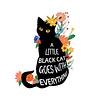Take a photo of a barcode or cover
informative
sad
medium-paced
I had a great history teacher in high school who had briefly gone through some of the events that were talked about here but I was also left curious about the non white perspective of the same events and this book did some of that.
History has been told various times through the views of many white Americans so a book written from a different perspective is interesting to me, and I was interested at different parts of this book. Overall I found myself enjoying and really interested in the beginning as the author talks about early North American history, the different tribes, and the meso American timeline through the Spanish invasion of the the Americas. but the book jumps around a lot as it explored North American history which would take me away or abruptly go into a different direction as some passages felt more like a rant or complaint.
This book is seeped in a few different things, sociology and politics and activism towards the last quarter as the book ends in modern or current times of it being published as it briefly mentions the protest of the Dakota Access Pipeline led by the Standing Rock Sioux tribe.
The author tries to tackle more than 400 years worth of history in about 300 pages, so some of a lot of details are left as a brief sentence or passage but for what is here, I can see that a lot of work and care went into this but a larger piece of me was really interested in learning about about the history of the different indigenous tribes and the meso American groups prior to European colonization a lot more but all in all a well researched book.
History has been told various times through the views of many white Americans so a book written from a different perspective is interesting to me, and I was interested at different parts of this book. Overall I found myself enjoying and really interested in the beginning as the author talks about early North American history, the different tribes, and the meso American timeline through the Spanish invasion of the the Americas. but the book jumps around a lot as it explored North American history which would take me away or abruptly go into a different direction as some passages felt more like a rant or complaint.
This book is seeped in a few different things, sociology and politics and activism towards the last quarter as the book ends in modern or current times of it being published as it briefly mentions the protest of the Dakota Access Pipeline led by the Standing Rock Sioux tribe.
The author tries to tackle more than 400 years worth of history in about 300 pages, so some of a lot of details are left as a brief sentence or passage but for what is here, I can see that a lot of work and care went into this but a larger piece of me was really interested in learning about about the history of the different indigenous tribes and the meso American groups prior to European colonization a lot more but all in all a well researched book.
Graphic: Genocide, Racism, Violence, War
Moderate: Racial slurs, Grief
challenging
dark
slow-paced
It took me a long time to get through this- the material is understandably heavy and upsetting. But it’s so enlightening to hear these stories from the perspective of indigenous peoples. When we learn about us history, the atrocities and their ripple effects are usually glossed over. This book removes the gloss.
challenging
informative
reflective
tense
medium-paced
This should be required trading in schools, alongside Zinn's A People History of the United States. For readers who are mostly familiar with the mainstream framing of U. S. history, this will be an eye opener. And even for those of us familiar with the scholarship, this book does an excellent job of connecting the dots, between past and present, genocide and foreign wars, etc. The middle part of the book is a bit repetive, likely a result of laying out such a long and complex history in an easy-to-follow way. But in light of the complexity of this writing project, this is a minor criticism. In terms of the audiobook: I do wish they had found a narrator who doesn't butcher every single Spanish name. The pronunciation was so bad, it was comical at times.
Graphic: Child abuse, Child death, Genocide, Gun violence, Physical abuse, Racial slurs, Racism, Murder, Colonisation, War
Moderate: Rape, Sexual assault, Slavery
Minor: Addiction, Alcoholism, Animal cruelty
challenging
informative
medium-paced
challenging
emotional
informative
reflective
sad
slow-paced
informative
reflective
sad
medium-paced
challenging
dark
informative
sad
tense
I just finished An Indigenous Peoples’ History of the United States, and I’m shaken to my core.
This was my first time learning—in depth—what actually happened to Native/Indigenous peoples during colonization. What we’re taught in school barely scratches the surface. The reality? It’s despicable. Vile. Inhumane. Unjust. Entire tribes were annihilated. Land was stolen through violence and deceit. Children were ripped from their families. Culture and language were erased. What I read has fundamentally changed how I view this country.
It makes me sick to my stomach to think about how patriotism is so often blind to this history. We condemn the Nazis for genocide, yet the blueprint was executed right here, on this soil. And we barely talk about it.
This isn’t just history—it’s a legacy that continues to harm Indigenous communities today. The fact that our current political leaders are actively working to erase conversations about systemic injustice is deeply disturbing. It shows how committed this country still is to protecting its own mythology, no matter the cost.
There is no amount of money or restitution that could ever make this right. But at the very least—we must learn the truth.
I highly recommend this book, but please know: it is dark, heavy, and disturbing. As it should be.
Resources & Ways to Learn/Support:
• Follow Indigenous creators: @rematriating, @nativein_la, @shinanova, @laneband, @indigenousrising
• Donate to organizations:
• Learn whose land you’re on: native-land.ca
• Support land back movements: Look into “Land Back” campaigns in your region.
• Buy from Indigenous authors & artists whenever you can.
This list isn’t exhaustive and nothing we do could ever truly be “enough.” But silence isn’t neutrality—it’s complicity. So let’s start here.
emotional
informative
sad
medium-paced
I've read a lot of the info in this book in other places, but this really puts together what the US looks like from the perspective of many American Indians. An important read.






